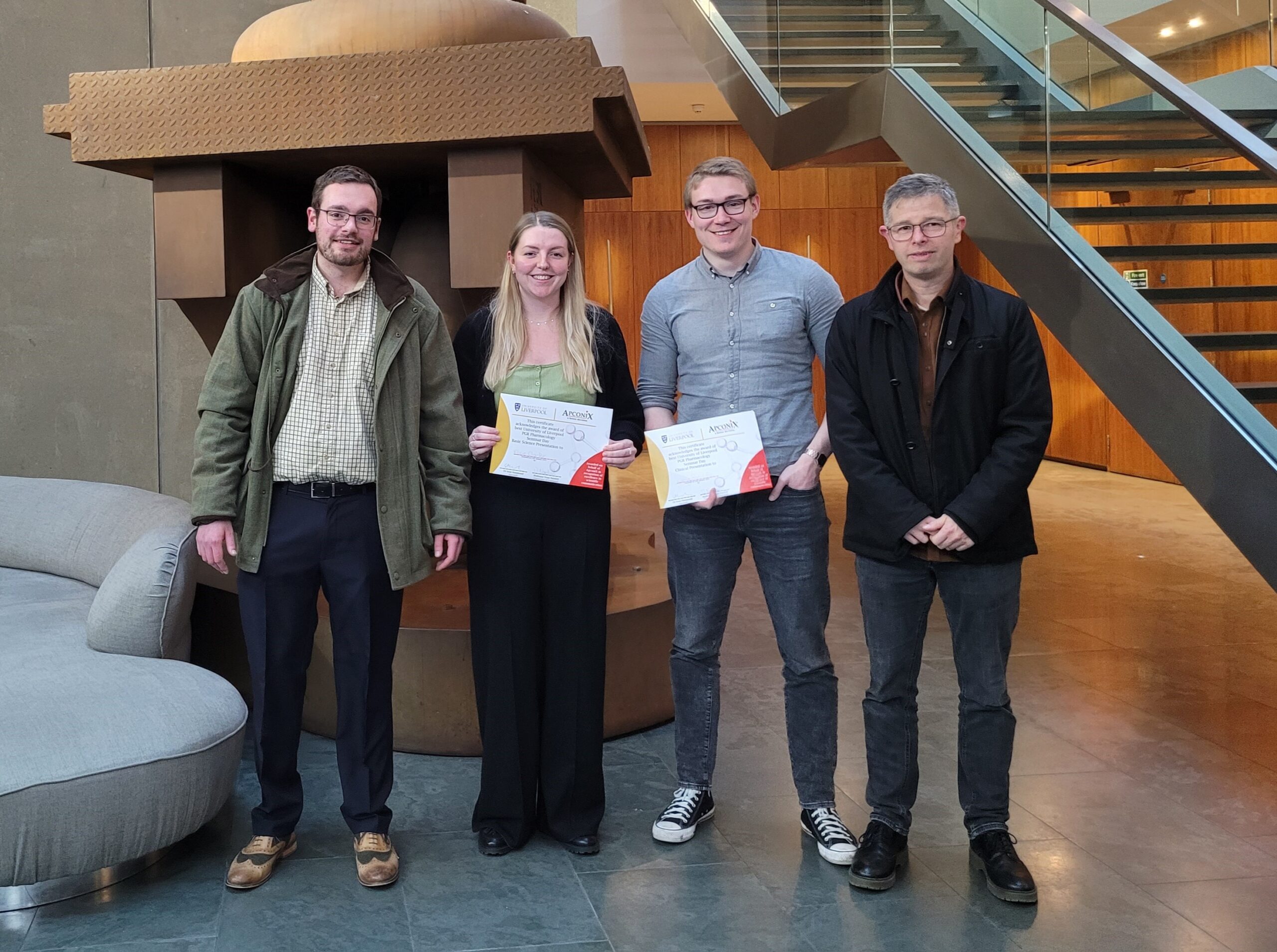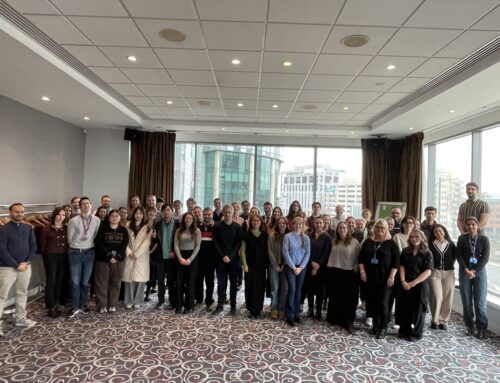ApconiX Sponsors PhD Seminar Day Awards

The Pharmacology and Therapeutics Department of the University of Liverpool held a Postgraduate Seminar Day on January 19th, 2024, at the Radisson Blu on Old Hall Street Liverpool.
ApconiX was delighted to sponsor the awards of best PGR Pharmacology Seminar Day Basic Science and Clinical Presentations. The awards were presented by Professor Dean Naisbitt, Department of Pharmacology & Therapeutics and Dr Sean Hammond, Immunotoxicology Lead at ApconiX.
University of Liverpool PGR Pharmacology Seminar Day
The seminar day was an opportunity for all second- and third-year PhD students to give a short presentation of their research to date. 20 students gave talks on their projects, and the day was attended by numerous students and academic staff. The talks spanned from mechanistic to clinical science and covered a broad range of subjects including adverse drug reactions, Parkinson’s Disease, Epilepsy and Leukaemia.
Dean commented, “It has been another great iteration of the PGR Seminar day. This day is an important part of the doctoral training programme, by participating in the event they develop their communicative skills and the feedback they receive from both senior staff and their own peers is great.”
Sean added, “It’s always a pleasure to be involved with a great day of science. Each talk is little snapshot into a 3+ year journey. One of the things that stood out to me this year is just how far students can progress in a year, and not just in terms of the high-quality data they produce, but also how their understanding, their confidence and ultimately the ownership of their own scientific journey advances.”
Thought from the Day
Sean was joined by Cynara Livera and Hannah Jennings who also studied at the University of Liverpool, gaining a BSc in Biochemistry and a MSc in Advanced Biological Sciences.
Hannah reflecting on the day, said, “As a former student of the university of Liverpool, I was proud to observe these students speaking so passionately about the brilliant and innovative scientific research they have dedicated their time to. I found the enthusiasm and drive of the students presenting inspiring and motivational. A big thank you to the event organisers and chair hosts, I always enjoy taking part in this event.”
Cynara added, “I always enjoy the day, too. Not being a biologist, I find the clinical talks very interesting. Seeing research that is clearly applicable to real diseases is particularly engaging and thought provoking.”
Awards
Elsie Clarke was awarded best University of Liverpool PGR Pharmacology Seminar Day Basic Science Presentation for her talk on “Adverse Reactions to CFTR Modulator Therapy in Cystic Fibrosis Patients”.
Elsie’s research is on T-cell mediated drug hypersensitivity reactions to the CFTR modulators in cystic fibrosis patients. These drugs have been transformative for CF patients, allowing them to live longer with fewer symptoms and hospitalisations. However, hypersensitivity reactions can lead to cessation of treatment, preventing patients from accessing these life changing treatments. The ultimate goal of the research is to characterise these reactions (through mechanistic studies and therapeutic drug monitoring), to identify the culprit drugs and determine if different treatment regimens (i.e. different combinations of compounds and lower dosages) can be used to allow patients to remain on these therapies. At present the major focus is on investigating the relationship between the pro-inflammatory environment seen in CF and how this may be linked to these reactions.
Corey Ratcliffe was awarded best University of Liverpool PGR Pharmacology Seminar Day Clinical Presentation for his talk on “Imaging Biomarkers of Seizure Recurrence in Neurocysticercosis”.
Corey’s research focuses on the hypothesis that the recurrence of seizures in neurocysticercosis may be linked to epileptogenic brain networks. Neurocysticercosis is a neglected tropical disease that predominantly presents with seizures; Epilepsy is one of the most common neurological disorders globally. By leveraging advanced MRI techniques, the cortical environment at the point of a first seizure can be better characterised and may help to inform treatment decisions in both diseases.
ApconiX was very pleased to be able to sponsor the awards and wishes Elsie and Corey and all the PhD students the best as they continue their research.





